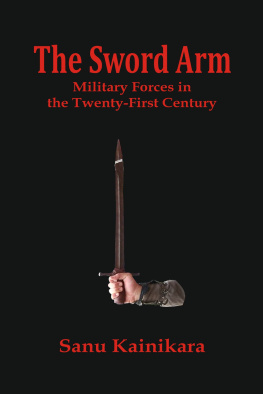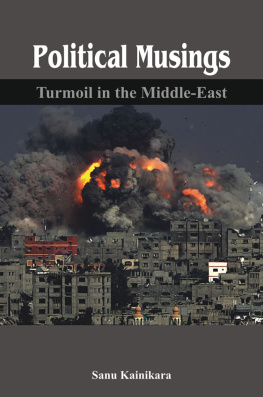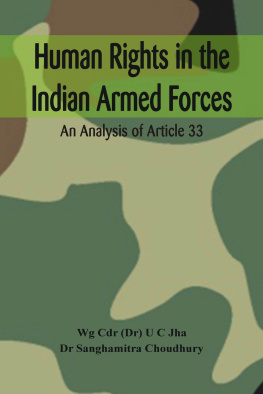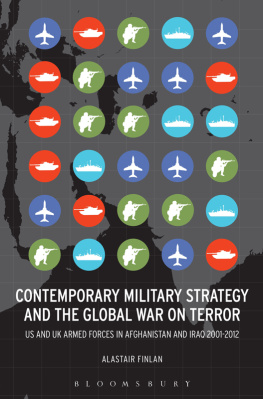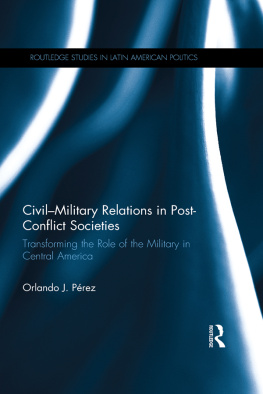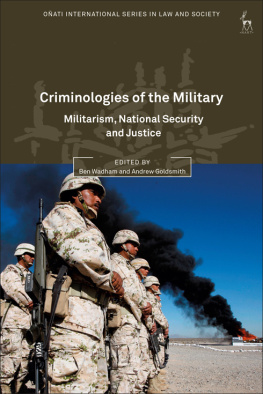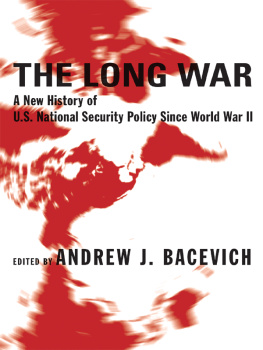The Sword Arm
The Sword Arm
Military Forces in the Twenty-First Century
Sanu Kainikara
Vij Books India Pvt Ltd
New Delhi (India)
Copyright 2019, Sanu Kainikara
Dr Sanu Kainikara
416, The Ambassador Apartments
2 Grose Street
Deakin, ACT 2600, Australia
First Published in 2019
ISBN : 978-93-88161-34-3 (Hardback)
ISBN : 978-93-88161-36-7 (ebook)
Designed and Setting by
Vij Books India Pvt Ltd
2/19, Ansari Road, Darya Ganj,
New Delhi 110002, India
(www.vijbooks.com)
All rights reserved.
No part of this book may be reproduced, stored in a retrieval system, transmitted or utilized
in any form or by any means, electronic, mechanical, photocopying, recording or otherwise,
without the prior permission of the copyright owner. Application for such permission should
be addressed to the author.
Dedicated
To the Warriors Past and Present,
Whose service, bravery, loyalty and integrity,
Have never wavered
May the Sword Arm always be steadfast
OTHER BOOKS BY SANU KAINIKARA
National Security, Strategy and Air Power
Papers on Air Power
Pathways to Victory
Red Air: Politics in Russian Air Power
Australian Security in the Asian Century
A Fresh Look at Air Power Doctrine
Friends in High Places (Editor)
Seven Perennial Challenges to Air Forces
The Art of Air Power: Sun Tzu Revisited
At the Critical Juncture
Essays on Air Power
The Bolt from the Blue
In the Bears Shadow
Political Analysis
The Asian Crucible
Political Musings: Turmoil in the Middle-East
Political Musings: Asia in the Spotlight
The Indian History Series: From Indus to Independence
Volume I: Prehistory to the Fall of the Mauryas
Volume II: The Classical Age
Volume III: The Disintegration of Empires
Volume IV: The Onslaught of Islam
Volume V: The Delhi Sultanate
CRAFTING THE SWORD ARM
T he continually changing norms within truly democratic nations and the impact of such changes, some made arbitrarily by the elected representatives of the nation, on the status of the military forces of the nation has been a topic of study for me for decades. Over the years I have noticed that the civilian leadership of most democratic nations display at least a slight discomfort when dealing with their military forces and its leadership. This wariness is visible in all democraciesfrom the most mature to the emerging pre-colonial onesand is more manifest in nations where the military force is all-volunteer in composition. In analysing this phenomena I have come to the conclusion that the reasons for this awkwardness could be attributed to both the civilian and the military leadership in almost equal measure. It is also clear to me that this tension between the two will never go away completely, but will only ebb and flow, primarily under the influence of individual personalities.
If the civil-military relationship is always bound to suffer from some amount of anxiety, it is incumbent on both parties to study the fundamentals of the relationship and attempt to ameliorate it in the best possible manner, and to the amount possible. It is the earnestness, from both sides, with which this effort is undertaken that will mark the stability or otherwise of democratic nations. This fundamental fact is not readily visible to either a political or military analyst unless the person manages to cross over from one discipline to the other and back again; not an easy task. However, civil-military relations have to remain on an even keel and be able to withstand a great deal of turbulenceespecially in times of relative peacein order for the nation to be secure. National security is never challenged as much as when there is discernible dissonance between the civil and military leadership. A democratic nation creates, or accepts, a divide between the two at its own peril.
The other major factor that influences the status of military forces is the complex relationship that the military forces share with the broader civilian society of the nation. The ethos of the nation as a whole towards the damage, destruction, and loss of life and treasure that the full employment of its military forces bring about; and the acceptance of the society of its commitment to provide tangible emotional and economic succour to the returning veterans of distant wars will directly influence the well-being of the warriors and indirectly determine the calibre and competency of national military forces. The profession of arms is not for the soft-hearted, but compassion towards the military forces has to be a demonstrated part of the national psyche if the force is to deliver what it is meant tonational security.

I started preliminary research for this book almost eight years ago, the pace being somewhat slow because of time constraints and other commitments. In fact for almost three years, while the concept of the book remained live, active thinking regarding the way forward and the research to further the writing remained dormant. In the end, about a year ago, the book overtook my vague and semi-existent plans for it and became an important element in my writing life. I somehow knew that the book had to be completed, although I am not able to clearly identify the impetus for the feeling or the actual events that led to the book assuming its own life, almost completely independent of my other commitments. In such circumstances an author is forced to go along with what the book dictates, becoming a follower rather than being the leader. In some cases, the esoteric and altruistic intentions with which the book was started gradually become the background rather than the core reason for writing itthe book assumes a superior position, demanding to be written. This has been the case with The Sword Arm. It was so exactingly insistent on wanting to be written that I was compelled to put aside other writing commitments to concentrate on it. I believe that this analysis must be brought to light as the ever-changing world is demanding much more than their traditional responsibilities from the military forces, while at the same time attempting to sideline them to the periphery of the national security equation. These two positions assumed by the national leadership of most democratic nations are non sequitur.

An author can, while writing the book, feel the flow, smell the freshness of the air that emanates from the pages, and know inherently whether the effort is grounded, or not, with each breath he or she takes. This is a feeling that can only come with complete involvement in writing the book, the toil, frustration at not getting the right expression and the hollow feeling that tells you that the turn of phrase is not one of beautyadequateness is not sufficient to satisfy the inner urge, most of the time it is the exemplary that one seeks. The author knows where the sentences have come from, where the ideas have originated, where the flow of thought is bound to go, even if the thought-process takes a life of its own, for some books are like thatthey have a life of their own. For me, this book has been one such occasion.

